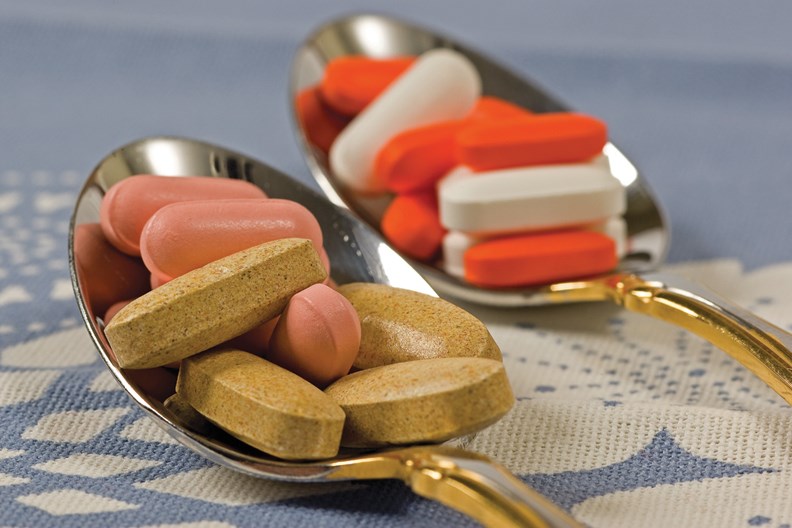The most abundant mineral in the human body is calcium, stored almost entirely in the bones and teeth, supporting their structure. It is important for proper muscle function, nerve transmission and hormonal secretion. Vitamin D helps the body benefit from this calcium, helping it to build and maintain strong bones and teeth, meaning it can also protect older adults against osteoporosis.
We get our supply of vitamin D from the usual sources including food and drink, but unique to this vitamin, we can also synthesize it ourselves after exposure to ultraviolet rays from sunlight. Thus the name sunshine vitamin.
Too little vitamin D in the body can cause calcium and phosphorus levels in the blood to decrease. This leads to calcium being pulled out of the bones to help maintain stable blood levels. In turn, this can create complications including rickets in children and osteoporosis in adults.
Dietary sources of vitamin D include dairy products (milk and soy milk are fortified with it), eggs, fish and margarine. As for sunshine, it may not be enough during the Canadian fall, winter and spring seasons. That leads to a third source for vitamin D: supplements.
When we are not able to consume or synthesize enough vitamin D, it can make sense to boost levels with a supplement. But how much do we need? Health Canada recommends a daily intake of 600 International Units (IU) for anyone aged nine to 70 ; they set an upper limit at 4,000 IU per day. These figures come from the Institute of Medicine (IOM), which develops recommended dietary allowances for Canadians.
In its research, the IOM examined more than 1,000 studies on vitamin D and concluded that high levels of the supplement are unnecessary and could be harmful. They warned that doses above 4,000 units a day were potentially harmful and that doses above 10,000 IU per day are associated with kidney and tissue damage. More succinctly, the report said there is no additional health benefit from taking more than the recommended amounts. And not only are mega-doses not warranted, they may be unsafe.
Though we know better, we still see higher doses being pushed as shortcuts to better health. For example, we have seen at least one organization which recommends 5,000 IU per day, and an upper limit of 15,000 for obese Canadians — and yes, they are in the business of nutrition and supplement-based health prevention programs.
What’s wrong with high doses? Because vitamin D is stored in fat cells, it can build up and may increase the risk for adverse health effects. Vitamin D toxicity comes when a body has accumulated too much of the vitamin and the result is hypercalcemia, where there is too much calcium in your blood. This can weaken bones, create kidney stones and interfere with the way the heart and brain work. It can also lead to heart arrhythmia and calcification of soft tissues.
Vitamin D is an important part of every body, and if you are not getting enough, do consider supplements. But when you do, be sensible about how much you need — more is not always better. To learn more, see Health Canada (www.hc-sc.gc.ca/fn-an/nutrition/vitamin/vita-d-eng.php) or call BC HealthLink at 8-1-1.



